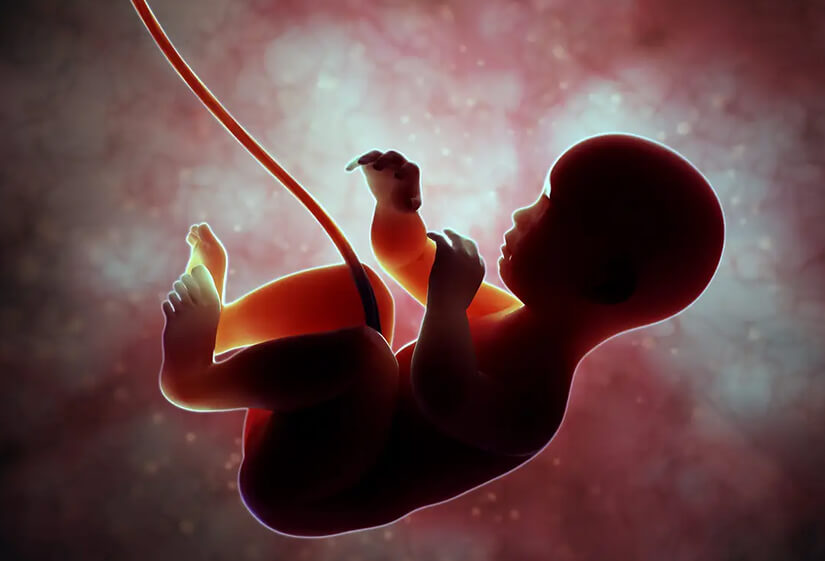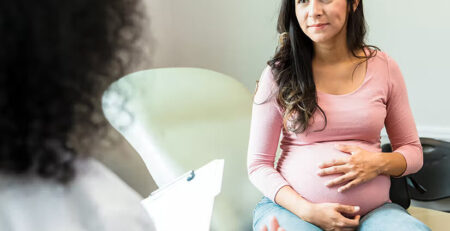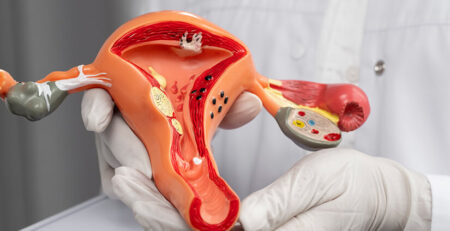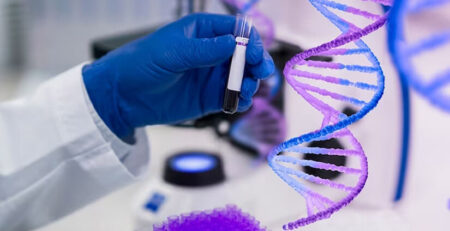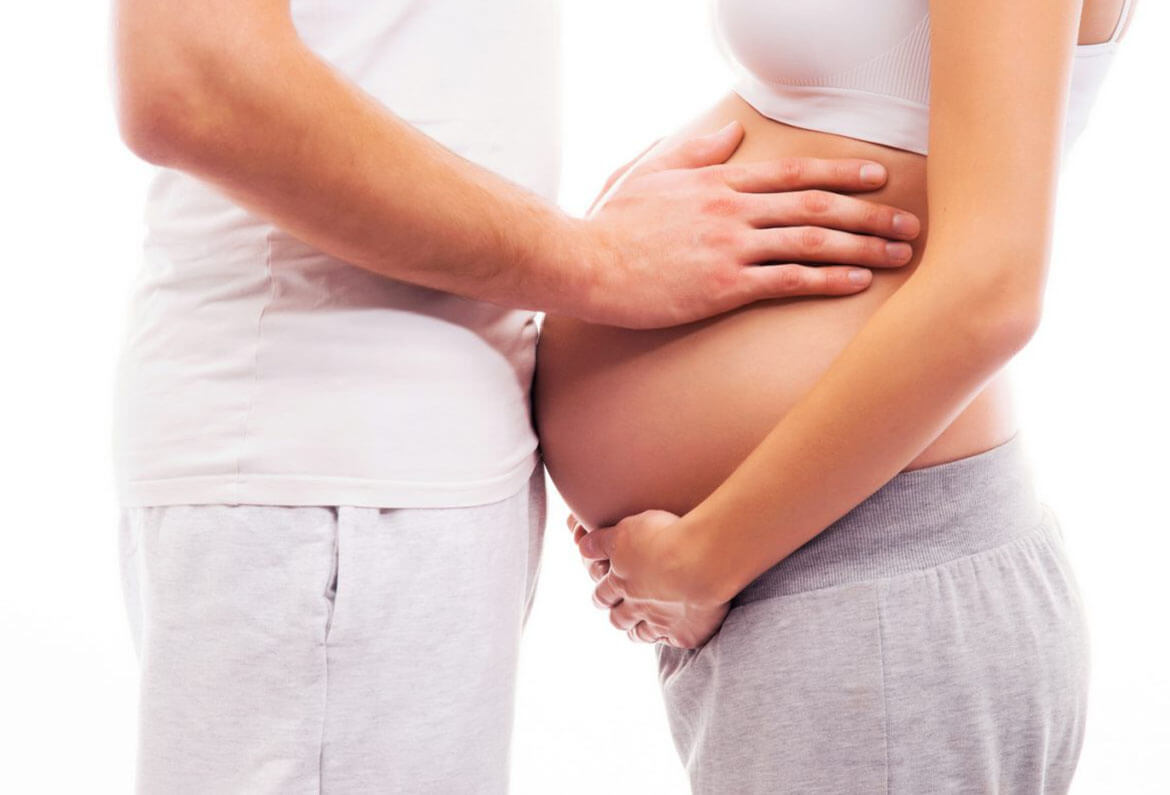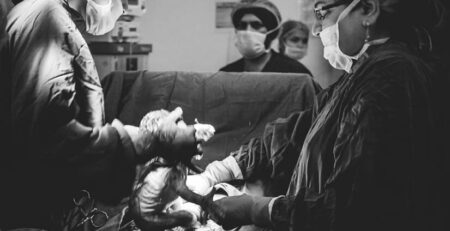Growth of Baby Month by Month Inside The Womb
Pregnancy is a miraculous journey that unveils the wondrous miracle of life. As an expectant parent, you eagerly await the arrival of your little bundle of joy, and nothing compares to the thrill of watching your baby grow month by month inside the womb. From the very moment of conception, a remarkable transformation begins as cells divide and multiply, forming the foundation of a tiny human being.
Each passing month brings its own set of surprises as the baby’s senses awaken, organs mature, and an intricate network of veins and nerves comes to life. The best gynaecologist in Delhi can guide you through the entire process.
Baby’s Growth Month by Month
The pregnancy journey is a remarkable and awe-inspiring experience as a tiny miracle unfolds inside the mother’s womb.
Month 1 (Weeks 1-4)
The initial weeks of the beginning of pregnancy encompass the time between the start of your last menstrual period and ovulation. At this stage, most women do not yet realise they are pregnant and may not take a pregnancy test. As the fertilised egg moves from the fallopian tubes to the uterus, its cells multiply rapidly. Once it reaches the uterus, the implantation process begins, marking the start of placenta formation. Consulting the best gynaecologist in Shalimar Bagh can help you to understand all the stages of a baby’s growth.
Second Month (Weeks 5-8)
During the second month, the developing embryo will experience significant milestones. The most notable is the initiation of the heartbeat. Additionally, rudimentary structures that will later develop into limbs, fingers, and toes begin to form. Internally, vital organs like the brain, spinal cord, and other internal organs are also in the early stages of formation.
Due to the critical development during this period, the best gynaecologist in Delhi can prescribe prenatal vitamins containing folic acid to expectant mothers. This nutrient is crucial in preventing certain congenital disabilities and ensuring the baby’s healthy development.
Third Month (Weeks 9-12)
During the third month of pregnancy, the baby’s development progresses significantly. The hands become more formed, and the baby starts moving within the uterus, even though the pregnant woman may not feel these movements yet. The tiny fingers even have soft nails beginning to develop. The best gynaecologist in Shalimar Bagh will guide you through all the changes.

Fourth Month (Weeks 13-16)
In the fourth month, the beginning of the second trimester, the movements of the baby’s arms and legs become more pronounced as the elbows and knees are now functioning. Although the sex organs and genitalia have been developing internally, it is around week 14 that they become externally visible, allowing the possibility of determining the sex of the baby through ultrasound or other methods.
Organs such as the intestines and ears are relocating to their permanent positions within the body. While the fetus continues to practice breathing movements using the amniotic fluid, the lungs are beginning to develop. Dr Rhythm Gupta, the best gynaecologist, will explain the changes during the second trimester.
- A notable change is that the fetus starts exhibiting more purposeful movements. The baby’s movements, like sucking their thumb or displaying facial expressions resembling a smile, give a glimpse of the developing neurological and muscular coordination.
During the sixteenth week, the developing fetus possesses distinct lips, and its ears have progressed enough to enable it to hear the voice. Despite its closed eyes, the fetus can respond to light stimuli by turning away from it.

Fifth Month (Weeks 17-20)
During this stage of development, the fetus continues to have delicate and thin skin. However, it will gradually start accumulating fat beneath the skin, aiding in insulation and providing energy. The fetus’s skin is naturally coated with a whitish substance known as vernix which serves as a protective layer that helps shield the fetal skin from prolonged exposure to the amniotic fluid.
Interestingly, the fetus may exhibit a sleep-wake cycle during this period, and it experiences periods of sleep and wakefulness, just like a newborn baby. Notably, loud noises can awaken the fetus if it happens to be in a state of slumber.
As the pregnancy progresses, the fetus gains strength, and it becomes more common for expectant parents to feel the sensation of kicks and punches. These movements indicate the increasing vigour of the growing baby. If you don’t feel any movement, consult the best gynaecologist in Delhi immediately.
At this stage, around week 20, the fetus’s nails start growing toward the ends of its fingers, another remarkable milestone in its development. Simultaneously, the area of the brain responsible for processing the five senses begins to develop, marking the emergence of sensory perception in the baby. A regular check-up with a gynaecologist in Shalimar Bagh is essential at this stage.

Sixth Month (Weeks 21-24)
At this stage, the baby reaches the remarkable milestone of being able to open its eyes. Additionally, the hair on its head begins to grow, although it’s important to note that not all babies will have visible hair at birth.
The distinct whirls that form unique fingerprints develop on the fingers and toes. It’s fascinating that these patterns will differ even for identical twins, emphasising each baby’s individuality. While the baby’s lungs have formed by this point, they are not yet fully functional, and they will continue to mature in preparation for breathing outside the womb. Visit your gynaecologist in Shalimar Bagh for a check to ensure the proper growth of the fetus.

Seventh Month (Weeks 25-28)
As the pregnancy progresses, the baby becomes more responsive to its surroundings. When the baby senses light filtering through the uterus, it will demonstrate the ability to open and close its eyes in response. The kicks and stretches of the baby become more prominent, and the mother can truly feel them. Others may also be able to feel or observe these movements. During this period, the lanugo, the fine hair that covers the baby’s body, begins to diminish gradually. As the baby’s neurological and muscular development progresses, it may exhibit the ability to grasp objects and respond to sound stimuli.
Dr Rhyhm Gupta may suggest ultrasound or other test to check whether the movement is proper.

Eighth Month (Weeks 29-32)
During this stage of pregnancy, the mother or pregnant lady may observe a rhythmic thumping sensation in the belly – the baby’s hiccups! Interestingly, these hiccups don’t seem to bother the baby, and there isn’t anything the pregnant woman can do to control or prevent them. They are a normal part of the baby’s development.
As the pregnancy progresses, the baby’s bones undergo ossification, where they harden and strengthen. However, it’s important to note that the skull remains slightly softer and comprises four bones, allowing for greater flexibility during delivery.
Excitingly, the baby’s taste buds are fully developed, enabling them to experience taste. They can distinguish between sweet and sour flavours, providing a sensory experience within the womb. At this stage, the baby also gains weight more rapidly as they grow and mature.
It’s essential to consult the best gynaecologist in Delhi to ensure if baby is growing properly.

Ninth Month (Weeks 33-36)
During the ninth month, the pregnant lady may notice that her baby’s skin appears less wrinkled, thanks to the gradual accumulation of weight, including the development of brown fat. The baby’s brain experiences a significant growth spurt, showcasing the rapid development of this vital organ. This surge in brain development emphasises the importance of allowing labour to begin naturally, as it ensures that the baby has ample time for this critical phase of neurological maturation.
By this stage, it is common for the baby to be positioned head-down in preparation for birth. If they haven’t assumed this position yet, they will likely do so as the due date approaches, aligning themselves optimally for delivery.
It’s important to note that these milestones are general guidelines, and each baby’s development can vary slightly. Regular prenatal check-ups with the best gynaecologist in Delhi are crucial to monitor the baby’s growth and ensure a healthy pregnancy.
Dr Rhythm Gupta, the best gynaecologist in Delhi, specialises in guiding expectant parents through this precious time. Schedule a consultation with Dr Rhythm Gupta today and ensure you and your baby receive the personalised care and support you deserve. Experience the joy of pregnancy with Dr Rhythm Gupta by your side.


